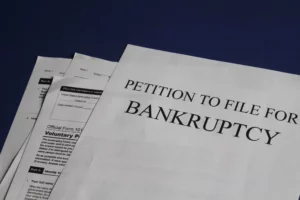Litigation in Thailand. Thailand operates under a civil law system, primarily governed by codified statutes. The key legal instruments governing litigation include:
-
Civil Procedure Code B.E. 2477 (1934): Governs civil litigation procedures.
-
Criminal Procedure Code: Governs criminal litigation procedures.
-
Civil and Commercial Code: Substantive law for civil matters.
-
Specialized statutes: Applicable to specific courts, such as the Labour Court or the Intellectual Property and International Trade Court.
Notably, while precedents are not binding as in common law systems, Supreme Court decisions are often referenced for guidance.
II. Court Structure
Thailand’s judiciary is structured into several tiers and specialized courts:
-
Courts of First Instance: Handle initial trials. These include:
-
Civil Courts: General civil matters.
-
Criminal Courts: General criminal matters.
-
Specialized Courts: Such as the Labour Court, Tax Court, and Intellectual Property and International Trade Court.
-
-
Courts of Appeal: Review decisions from the Courts of First Instance.
-
Supreme Court (Dika Court): The highest appellate court, which reviews cases from the Courts of Appeal.
Each court has specific jurisdiction, and cases are allocated based on the nature of the dispute.
III. Procedural Stages in Civil Litigation
-
Filing a Complaint: The plaintiff submits a written complaint to the appropriate court, outlining the facts and legal grounds of the claim.
-
Service of Summons: The court issues a summons to the defendant, along with a copy of the complaint.
-
Statement of Defense: The defendant must submit a written defense within 15 days of receiving the summons. Failure to do so may result in a default judgment.
-
Preliminary Hearing: The court may conduct a preliminary hearing to identify the issues in dispute and encourage settlement.
-
Trial: Both parties present evidence and witness testimonies. The burden of proof lies with the plaintiff, who must establish the claim by a preponderance of evidence.
-
Judgment: The court delivers a judgment based on the evidence and legal arguments presented.
-
Appeal: Parties may appeal the decision to the Court of Appeal within 30 days of the judgment. Further appeals to the Supreme Court are possible under certain conditions.
IV. Procedural Stages in Criminal Litigation
-
Investigation: Conducted by the police, who gather evidence and may detain suspects.
-
Prosecution Decision: The public prosecutor decides whether to file charges based on the investigation.
-
Arraignment: The accused is formally charged and enters a plea.
-
Trial: The prosecution and defense present their cases. The standard of proof is “beyond a reasonable doubt.”
-
Judgment: The court delivers a verdict and, if guilty, imposes a sentence.
-
Appeal: The accused or prosecution may appeal the decision to higher courts.
V. Alternative Dispute Resolution (ADR)
Thai courts encourage ADR methods, such as mediation and arbitration, to resolve disputes efficiently. Mediation is often conducted during preliminary hearings, and arbitration is commonly used in commercial disputes.
VI. Enforcement of Judgments
Once a judgment is final, enforcement proceedings may be initiated. This can include:
-
Seizure of assets: To satisfy monetary judgments.
-
Injunctions: To compel or prevent certain actions.
-
Contempt proceedings: For non-compliance with court orders.
VII. Practical Considerations
-
Language: Proceedings are conducted in Thai. Foreign parties should engage legal counsel proficient in Thai law and language.
-
Legal Representation: While individuals may represent themselves, legal representation is advisable due to procedural complexities.
-
Costs: Court fees are generally based on the amount in dispute. Legal fees vary and should be agreed upon in advance.
-
Timeframes: Litigation can be time-consuming, with cases potentially taking several years to conclude, especially if appeals are involved.









